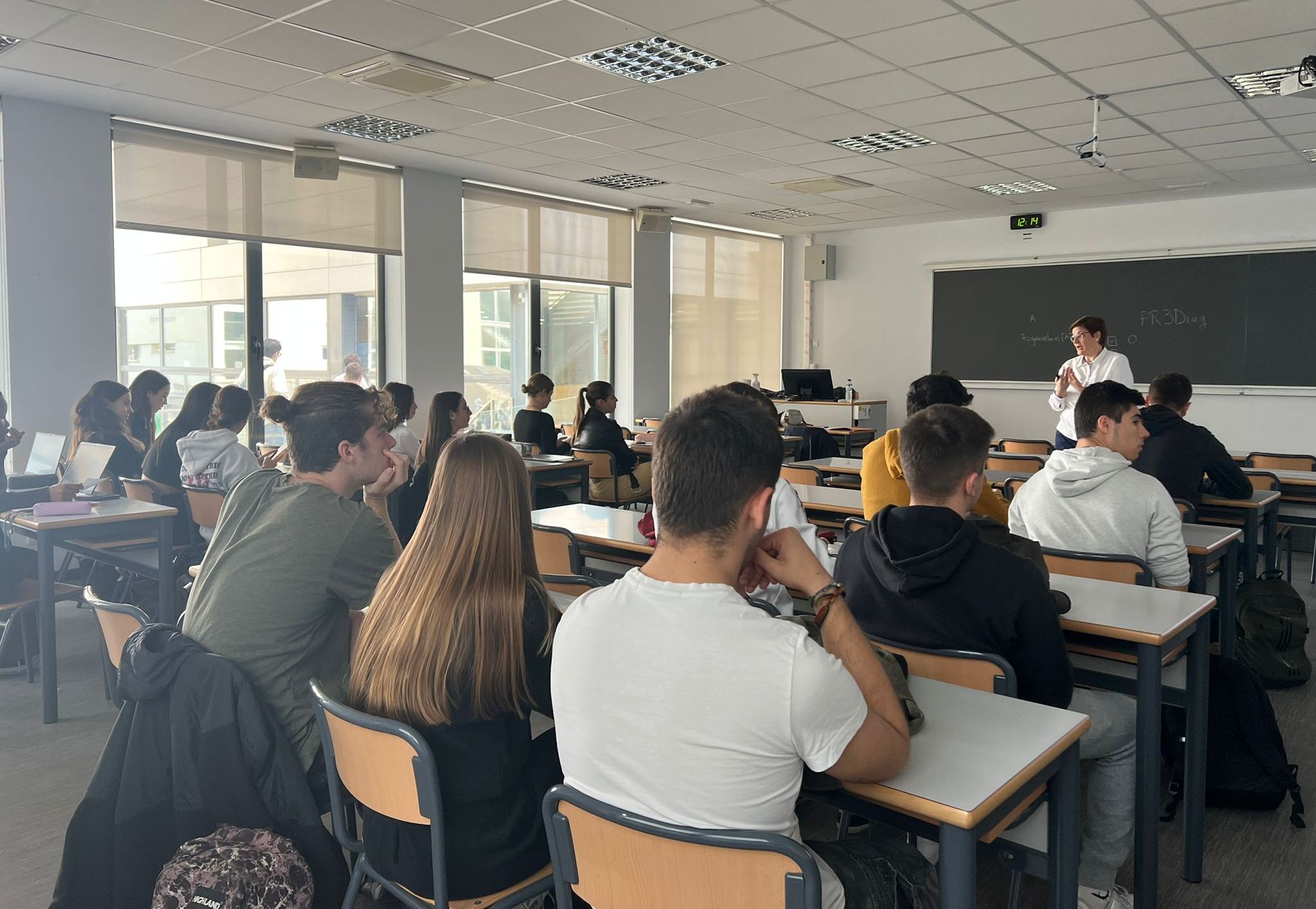In the digital age, the fight against corruption has found a powerful ally in artificial intelligence (AI). This technology, with its ability to analyze large volumes of data and detect hidden patterns, offers unprecedented tools to identify and prevent fraudulent acts.
However, its practical implementation is still very limited and not without its challenges. In this article, we explore how AI can transform the fight against corruption and reflect on the governance, organizational, human, and ethical dilemmas that this technological revolution entails.
In what areas or areas of the fight against corruption could we apply artificial intelligence?
Here are some of the applications that artificial intelligence could have:
Public procurement:
- Control of public tenders by monitoring tenders to detect anomalous patterns, such as tailor-made tenders or tenders always won by the same company.
- Review of public contracts for unusual clauses or potentially corrupt conditions.
Public Audits:
- Budget audits to analyse expenditures by municipalities and other public administrations, identifying irregular allocations or unjustified expenditures.
- Control of subsidies and public aid to detect duplication or beneficiaries that do not correspond.
Pattern Detection:
- Detection of anomalous patterns through machine learning, as large volumes of data can be analyzed for anomalous patterns that could indicate fraudulent activity. For example, in financial transactions, tenders, contracts or grants.
- Text analysis when reviewing documents and emails for suspicious terms or patterns, such as in the case of false reports.
Human resources:
- Human resources management to detect irregularities in selection processes, internal promotions, swaps, etc.
- Control of conflicts of interest by identifying possible relationships between public administration staff and private companies.
Utilities:
- Detection of irregularities in the management of public services by identifying possible cost overruns, deficiencies or bad practices.
- Validation of official documents, verifying the authenticity and consistency of documents submitted in administrative procedures, avoiding forgeries.
Data Analysis:
- Database integration: by connecting public databases (local, national or international), information can be cross-referenced and possible fraud can be detected more efficiently.
Data Protection:
- Protection of sensitive data by alerting about unauthorized access or manipulation of government databases.
- Optimization of investigations since, when detecting a possible case of fraud, the AI could recommend a series of steps or actions based on previous cases, thus optimizing resources and investigation times.
Information Systems
- Whistleblowing systems: AI-powered anonymous whistleblowing platforms to ensure whistleblower protection and the validity of information received.
- Predictive systems: AI could help predict areas or sectors with a higher risk of fraud in the future based on historical data and current trends.
- Training in ethics and public integrity for public administration staff and citizens, adapting the content to the real needs of each person detected by the AI itself.
Legislation and transparency
- Transparency in decision-making: AI tools that explain how certain government or corporate decisions are made, reducing the possibility of undue favoritism.
- Review of legislation and regulations: AI can analyze and compare legislation from different regions or countries to propose modifications that reduce legal loopholes that allow corruption.
Below, we are going to look at examples of AI-based tools and applications that are already working in the field of anti-fraud and corruption-based fraud. We have grouped them according to the objective they pursue.
Tools for detecting corruption in public procurement
Let’s start with the case of VigIA, an artificial intelligence tool conceived by the Tic Tank of the Universidad del Rosario (Argentina) and supported by CAF (Development Bank of Latin America and the Caribbean), for the District Oversight Office of Bogotá. The objective of VigIA is to identify contracts of the Mayor’s Office of Bogotá with high risk of corruption and inefficiencies, taking advantage of the data provided by the Electronic System for Public Procurement.
In the field of private initiative, we have found the case of Percephtor, designed by a Mexican company to help citizens supervise public works, evaluate the performance of political positions and fight corruption. This tool performs object recognition using images and videos. In 2022, it was identified that the Government of Mexico spent an average of 2.7 million pesos per minute on public works, a fact revealed by “Mexicans Against Corruption and Impunity” that refers to undeclared expenses on CompraNet, the portal aimed at showcasing public contracts.
The European Union’s Digiwhist project is a big data tool created to detect fraud at European level in public procurement. The project processes indicators and public data and maintains a close collaboration with organizations focused on whistleblowing corruption such as Xnet[i]
We point out that Xnet has a strong link with the Valencian Anti-Fraud Agency since the Agency’s complaint box is based on the Globaleaks platform, which was adapted to the technology and legislation in force by Xnet.
This Digiwhist project is a collaboration of six European organisations, led by the University of Cambridge. For its creation, they have studied public procurement data from 35 jurisdictions with which to create a public database. With the information collected, Digiwhist has designed tools to promote more transparent and fair public procurement. These tools are freely accessible to the public and offer valuable resources for NGOs, journalists, administrations and businesses.
The main tools include:
- www.opentender.eu: Platform to search for public tenders in 35 jurisdictions.
- European Public Accountability Mechanisms (EuroPAM) which allows the comparison of legal and regulatory standards in different jurisdictions.
- European Tenders Monitoring (MET): software for assessing risks in public procurement procedures.
Artificial Intelligence Tools Applied to Fraud and Corruption Investigation
An example of a tool that has already been developed and has proven its effectiveness is Ravn, a software with artificial intelligence that can filter, index and summarize documents quickly and without errors, surpassing humans in efficiency. He gained notoriety for the role he played in uncovering a corruption case at Rolls-Royce in 2008 as he helped the UK’s Serious Fraud Office (SFO) analyse 30 million documents, processing 600,000 documents daily.
These programs, known as ‘Lawtech’, use intelligent algorithms to learn from their experience, optimizing time and resources. They can perform tasks such as indexing multinational repositories or extracting passport numbers from images automatically. Despite their effectiveness, they are not seen as a threat to employment in the legal sector, but as a tool to improve efficiency.
Likewise, in Spain, the tax administration and social security have digital platforms that facilitate and automate processes and, by cross-referencing information, can identify fraud. Since 2015, the Directorate-General of the Labour and Social Security Inspectorate has been using software based on artificial intelligence (data analysis) to identify fraud in a more agile way under the name of Anti-fraud tool.
The Tax Agency also has a tool by which the self-assessments submitted by taxpayers are automatically checked to detect discrepancies between the data included in the self-assessment and other data available to the Treasury.
Artificial Intelligence Tools for False Reporting Detection
The National Police already works with an artificial intelligence system called VeriPol, which is used to detect false complaints. This system was designed together with the Autonomous University of Madrid based on the increase in false reports related to violent robberies. What it does is analyze the language of the complaints filed using natural language processing and machine learning techniques and has proven to be 91% effective.
Despite its effectiveness, this system has recently been questioned as it is based on the analysis of 1,122 complaints from 2015, which some experts consider does not adequately reflect the linguistic and social diversity of Spain, since most of the data comes from Andalusia.
In addition, the algorithm does not directly process the language of the whistleblowers, but rather interprets what the police record, which can introduce bias.
Artificial intelligence tools to detect cases of conflict of interest
Artificial intelligence can help fight corruption by detecting irregularities and conflicts of interest through massive data analysis. For AI to be effective, it is crucial to have accurate algorithms and quality data such as Arachne.
Arachne is a digital system created by the European Commission to improve controls on projects funded by the EU Structural Funds, such as the European Social Fund and the European Regional Development Fund. By storing data from these projects and enriching itself with public information, Arachne identifies potential risks of fraud, conflict of interest and irregularities. However, it is not intended to assess beneficiaries individually or to automatically exclude them.
To understand how it works, project data comes from ESF and ERDF managing authorities, which Member States send to the European Commission. Arachne also uses data from external sources, such as Orbis and World Compliance, to improve its analysis. The tool calculates specific risk indicators.
Arachne collects data on beneficiaries, project partners, contractors, service providers, and others, including names and addresses. It also includes information from external sources such as data on companies, shareholders, and sanctions lists.
Arachne, with its analysis methods, is an essential tool for managing authorities in the fight against fraud and in improving the management of EU-funded projects.
Artificial Intelligence Tools for Corruption Prevention
The Rapid Alert System (SALER)[ii] of the General Inspectorate of Services of the Generalitat Valenciana is responsible for identifying signs of irregularity in administrative files. This system is used in public procurement, subsidies and fixed cash. The detected alerts are communicated to the inspectorate for analysis and action in accordance with the law.
Although it has had some limitations, it has proven to be effective in detecting anomalies. In addition, it has a sanctioning regime that penalizes actions such as the intentional alteration of information addressed to the system.
Another project that we highlight is the Red Flags[iii] funded by the European Commission and created by various organizations in Hungary to monitor public procurement in that country. This tool analyzes procurement procedures and, through an algorithm, determines those with the highest risk of corruption based on predefined alerts according to their severity or probability of indicating actual corruption. In addition, it allows both citizens and public employees to access this information.
The Social Security in Spain is using an artificial intelligence algorithm to monitor employees on sick leave and detect possible fraud incorporated into the LINCE project. This predictive tool, in use for 5 years, assesses people’s health status and predicts the likelihood of their fitness to return to work.
The algorithm determines which files should be reviewed first by the medical inspectors of the National Institute of Social Security (INSS). If reinstatement has not been processed, the system flags the file as a potential case of fraud.
Professors Iturriaga and Sanz[iv] of the University of Valladolid have developed a study that uses artificial intelligence to predict in which Spanish provinces corruption could increase in the coming years.
Using a neural network model, the study processed economic and political data between the years 2000 and 2012 to identify areas prone to corruption and the conditions that favor it. One of the conclusions is that the likelihood of corruption increases if a political party remains in power for a long time. In addition, factors such as the increase in the property tax, an increase in house prices, the opening of many bank branches, and the creation of new companies can be indicative of corruption. This research is innovative because it uses real data instead of subjective perception indices, as was done previously.
What problems could the implementation of artificial intelligence pose?
The implementation of artificial intelligence tools in the fight against fraud and corruption could, however, pose the following problems:
- Resistance to change and lack of training.
One of the main barriers to the implementation of artificial intelligence is the resistance to change on the part of public administration staff. Many professionals may feel threatened by the irruption of technologies that they believe can supplant their positions or that hinder their usual work due to the lack of specific training in the use of these tools.
To overcome this obstacle, it is essential to promote education and capacity building programs that enable staff to better understand artificial intelligence, how it works, and how it can be a complementary tool that facilitates and enhances their work, rather than replacing it. It’s also crucial to properly manage expectations and clearly communicate the goals and benefits of these initiatives.
- Privacy and data protection issues.
Artificial intelligence requires access to large volumes of data for its proper functioning. However, the management of this data in the public sphere raises serious concerns regarding the privacy and protection of citizens’ personal information. The misuse or unintentional exposure of this data can have serious consequences, particularly in the case of whistleblowers.
Therefore, it is essential to establish security protocols that ensure that artificial intelligence solutions comply with current data protection regulations.
- Lack of technological infrastructure.
The implementation of systems based on artificial intelligence requires an advanced and up-to-date technological infrastructure.
It is essential, therefore, to create collaborative networks, as well as the involvement of national and European bodies that promote this type of technology.
The upcoming launch of the Spanish Agency for Artificial Intelligence could contribute to the development of these projects.
- Biases.
Although artificial intelligence can be a powerful tool in detecting patterns and anomalies, it is not without errors. Algorithms are fed data, and if this data contains biases or this data is not representative, the conclusions derived could be wrong or unfair. This is especially worrisome in the public sphere, where decisions based on erroneous data can have serious repercussions for citizens.
To mitigate this risk, it is critical to take a critical and continuous approach to reviewing and validating AI models. In addition, protocols must be established that allow for the rapid correction of errors and ensure that systems do not perpetuate or amplify existing biases in data or in society, in addition to ensuring the protection of citizens’ fundamental rights and privacy in the use of big data and automated systems by public administration (Bone, 2021)[v].
Throughout these pages we have been detailing some of the main uses that artificial intelligence can have in the fight against fraud and corruption.
We have analysed tools that are already in place and working, and we have ventured into other applications that could be developed. The incipient phase in which this technology finds itself does not allow us more than glimpses a small part of the applications that it will surely have in the future.
By way of conclusion, we highlight these 3 aspects:
- The enormous potential of artificial intelligence.
Thanks to its ability to analyze large volumes of data in record time, artificial intelligence can detect patterns and anomalies that would be virtually invisible to the human eye or that would require enormous efforts and time to be identified. Not only does this speed up investigations and improve accuracy in detecting corrupt activity, but it can also act preventively by identifying areas of risk before they materialize.
- Need for careful and ethical implementation.
The implementation of artificial intelligence in the field of anti-corruption is not without its challenges. Issues such as data privacy, biases in algorithms, and dependence on third-party providers require special care.
It is important that administrations dedicated to the fight against fraud and corruption adopt an ethical and transparent approach, ensuring that AI systems are fair, impartial and respect the fundamental rights of citizens. Training and raising awareness of staff working in public administrations on these issues will be crucial to ensure successful and ethical implementation.
- Artificial intelligence as a complement, not a substitute.
Although artificial intelligence can be an ally in the fight against corruption, it cannot be considered as a substitute for current control and surveillance systems and mechanisms. On the contrary, it should be seen as a complementary tool that enhances and reinforces the actions of administrations in this area.
The combination of human skills with the analytical capabilities of artificial intelligence offers the perfect formula to fight corruption while ensuring integrity and transparency in our public administrations.
Amalia López Acera
Head of institutional relations, communication and participation unit of the AVAF
[i] Almonacid, V., & Alamá, J. 2012. Complaint boxes: What, Who, When, Where and Why. Antifrau CV.
https://www.antifraucv.es/buzones-de-denuncias-que-quien-cuando-donde-y-por-que/
[ii] https://participacio.gva.es/documents/162282364/164407117/Documento+explicativo-+Presentaci%25C3%25B3n+del+Sistema+de+Alertas/b1228cc0-d5bc-4121-bb63-87eb7180d262
[iii] https://www.redflags.eu/
[iv] López-Iturriaga, F. J., & Sanz, I. P. (2018). Predicting public corruption with neural networks: An analysis of spanish provinces. Social Indicators Research, 140, 975-998.
[v] Bone, L. C. (2021). Towards transparency 4.0, the use of artificial intelligence and big data for the fight against fraud and corruption and the (many) constitutional requirements. In Rethinking Digital Administration and Public Innovation (pp. 169-196). National Institute of Public Administration (INAP).




